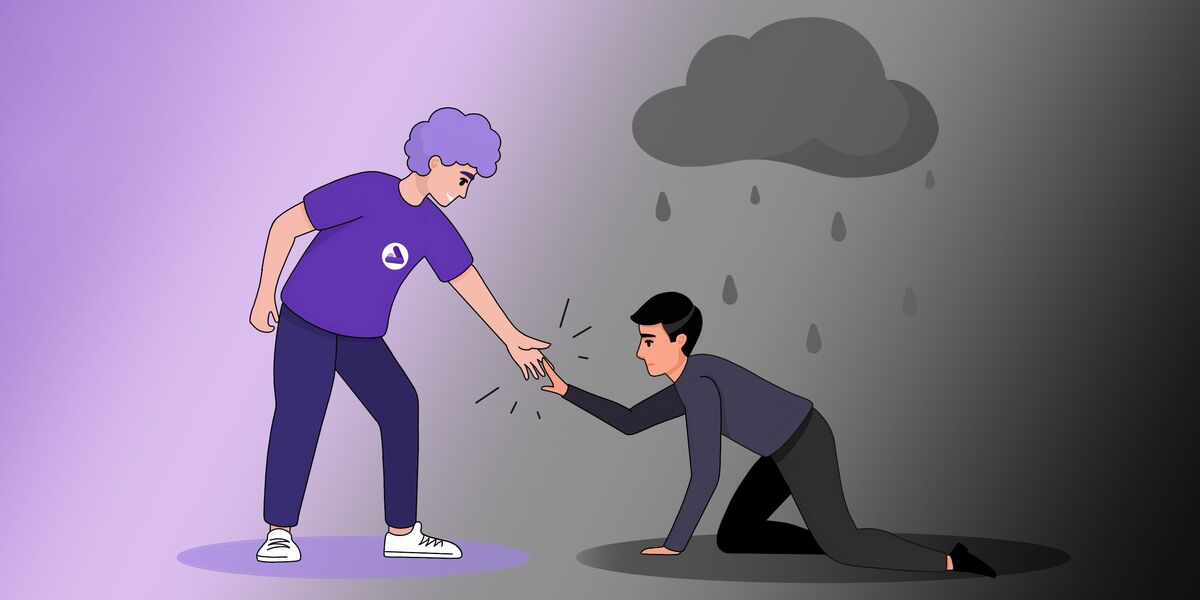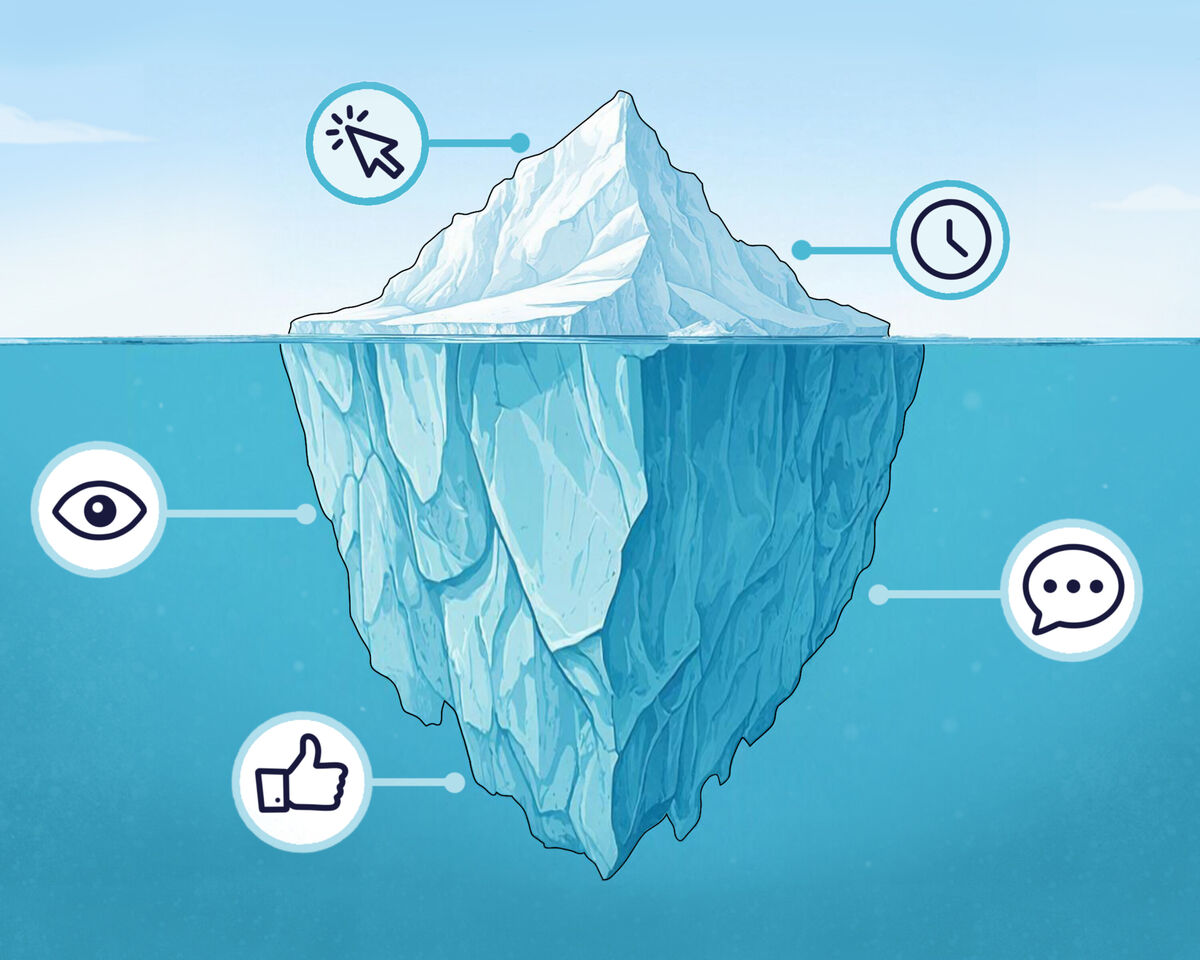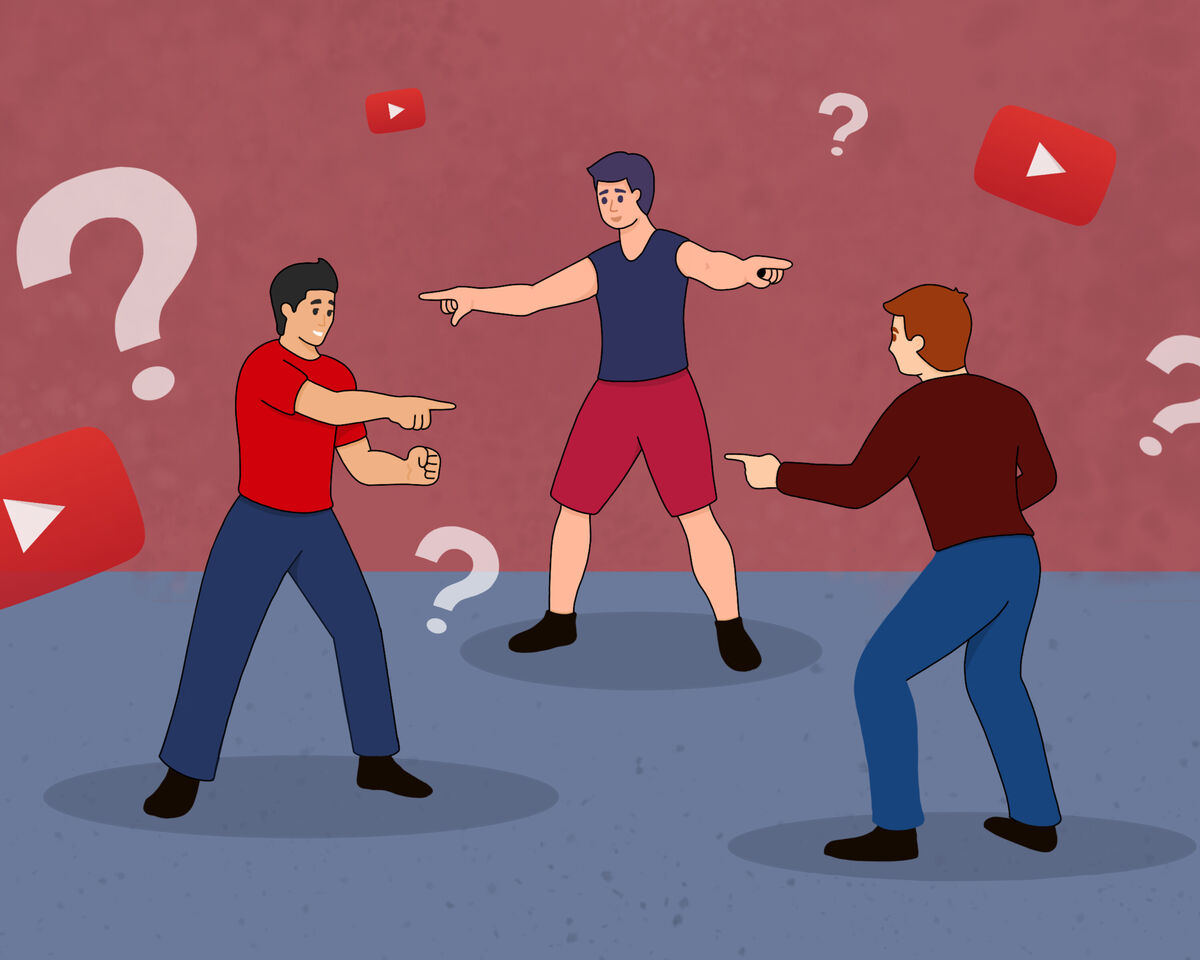Building Success on YouTube: Practical Insights for Creators

Have you also noticed that motivational videos don’t really work?
You listen to all these overused pieces of advice like "be strong," "stay positive," "change your mindset," "believe in yourself," and other loud yet ultimately empty words.
We’re not promising to share any truly effective motivational tips in this article because, in reality, those are unique to each of you. But we will do our best to share some truths we’ve discovered over years of working on YouTube. Truths that help us and, hopefully, will help you stay engaged with your work on the platform without losing interest in what you do.
And let’s start with this:
Bloggers often rely on highly unrealistic expectations.
Every YouTube creator wants to believe in miracles—that popularity is a result of luck and extraordinary talent.
But this is where many stumble: luck and talent are as fleeting as magic and fairy tales. We get it; all of us are secretly waiting for our Hogwarts letter. Yet in reality, all we receive in the mail are bills.
Luck is the outcome of the actions you take to achieve your goals.
In our articles, we often use MrBeast as an example, and today is no exception. Regardless of how you feel about him, he is someone who achieved success through relentless hard work without turning into an entitled celebrity. His journey to success is truly inspiring.
In a documentary about him, here’s what was said on 13:09-13:21 about Jimmy’s talents:
YouTube operates in the same way: you manage your channel, invest time in developing your skills, improving your content, and promoting it—whether through services or successful collaborations. This takes time, and when your channel starts to grow, it won’t be luck; it will be the result of your efforts.
Talent isn’t something bestowed by the universe or nature—choose the explanation that resonates with you. Talent is the outcome of developing your skills.
No one is born a millionaire YouTuber, a great speaker, a brilliant video editor, or a genius scriptwriter. People who are now successful, often attributed with so-called “talent,” always say they honed these skills, which ultimately led them to success. They spent years reaching their current level, constantly seeking their uniqueness and distinctive style, and that’s what others call “talent.”
But that’s not the case. If you’re at the starting line and feel like you don’t know anything and have no talent, you’re right. You simply haven’t spent time developing those skills yet.
However, countless creators dedicate themselves to skill development, investing their time, energy, and even money to outshine their competition, yet still don’t achieve success.
And once again, let’s turn to MrBeast.
You see?
And here, it seems, lies the next reason why typical motivational advice doesn’t work:
Stereotypes about blogging prevent us from seeing the real picture
No matter what anyone says, being a YouTuber is a full-fledged job.
Sure, back when it all started, it was relatively easy to gain popularity and start earning big money because there was virtually no competition. But today, YouTube is a business. And as far as we remember, no business starts making huge profits right away without requiring some level of investment.
In fact, let us emphasize this: any well-thought-out startup involves things like a unique idea, a business plan, a growth strategy, and—pay attention—investments.
All those flashy promises about a “business without investments” come from people who sell courses on how to launch such a business. Isn’t it ironic that you’d need to invest in buying a course to supposedly learn how to run a business without any investments?
We find it amusing every time. Just as amusing as watching people who believe the stereotype that being a YouTuber isn’t serious work—that all it takes is goofing off in front of a camera and uploading it online.
We’re not denying that such personalities exist and even become famous. But let’s start with the fact that these are rare cases, and they’re publicized precisely because they’re so unique. And the real question is: how long do such creators stay at the peak of their popularity?
How easy is it to maintain your position even after reaching the top? The answer: it’s not easy. Sooner or later, you realize that succeeding on YouTube requires real work.
And this work isn’t just about creating quality content—it also includes maintaining your reputation. That, as it turns out, can be even harder than becoming popular in the first place.
Few people accurately assess the level of responsibility that comes with fame. Stereotypes make you believe that being a YouTuber is all about easy money, a glamorous life, world travel, and other incredible perks. But no one shows you the behind-the-scenes reality of a creator’s life.
Let’s break this down using an example of an average channel that has already built some recognition but hasn’t yet hit the big leagues.
How do we usually see such blogs? There’s a host who appears as the face of the channel and, let’s say, posts a video once a week about useful tips or interesting facts from the worlds of art, medicine, education, or any other field.
But what happens behind the scenes? Typically, the host works 24/7 studying trends, current facts, specialized literature, retrospectives of their topics, and finding subjects that will resonate with their audience right now. They analyze competitors, audience reactions, comments, and feedback, conducting experiments and research to craft a content plan and write video scripts.
And that’s not all. Channels often involve scriptwriters, copywriters, editors, designers, and more, all of whom require detailed instructions and whose work must be reviewed, including finished videos, thumbnails, and text.
All these people bring a wealth of experience and knowledge to their areas of expertise, making the content competitive.
And, of course, there’s the process of uploading and optimizing videos to meet audience expectations, incorporating keywords and search queries—a task that also requires time and expertise.
So yes, feel free to tell YouTubers their job is easy.
The truth is, behind every successful YouTuber stands either a team of experts who excel at their tasks or an immense amount of skills, time, money, and—most importantly—desire. Because the strength of your desire will directly influence not only your journey but also your content.
And this brings us to why motivational advice like “you just need to want it” doesn’t help your desire push you forward on YouTube.
You will never stop indulging your fears.
Feeling fear is natural for every human being. Fear is inevitable and often dictates our decisions and actions.
One of the most common reasons creators abandon their YouTube channels is mental health challenges like burnout.
When you’re just starting out, you’re full of enthusiasm: “I’ll make a few videos, people will start watching, I’ll build an audience, and I’ll keep running my channel forever because I love what I do.”
Then reality hits. You spend months on YouTube without views or subscribers, desperately searching for ways to turn things around. You pour your time and energy into creating content and finally reach the coveted 100 views—only to find they no longer feel rewarding, especially when someone else is raking in millions with a Minecraft video.
Even if you see some results, there’s no guarantee you won’t burn out from your content. As your audience grows, so do your views and your expectations for yourself.
Yesterday, your goal might have been 100 subscribers. Today, you’re agonizing over how to achieve hundreds of thousands of views, constantly wondering what’s wrong with your content.
And that’s just one scenario. What happens when, years down the line, you grow tired of your channel’s theme?
This, too, is normal. You started on YouTube years ago as one person with a certain set of interests. Now, after gaining experience and evolving, your interests have changed. You hit a dead end: your established persona and content no longer bring you joy. Often, this alone is enough to make someone quit—either to start over or to leave YouTube altogether.
Another challenge is the never-ending battle with imposter syndrome.
Even successful creators often feel their content isn’t good enough, that their popularity is a fluke, or that they don’t deserve what they’ve achieved.
Every day, we spend enormous amounts of time honing our skills, yet it always feels like we’re not doing enough. We dive as deeply as possible into our topics, yet it seems we haven’t covered them thoroughly. Many creators stew in this mental state for years. If you’re lucky, you have people around you who can evaluate your work objectively and provide balanced feedback. Most of us, however, know how hard it is to go without such external validation.
And then there’s the elephant in the room: nobody talks about how mentally draining content creation can be.
Let’s not forget the cherry on top—haters.
No matter how self-aware or confident you are, those negative, dismissive comments will find their way into your subconscious and resurface at the worst moments—when you’re at your most vulnerable.
The fear of being misunderstood or criticized will never leave you. Don’t fool yourself into thinking that reaching a million subscribers will make all the haters disappear and suddenly turn you into a super-confident creator.
Your doubts will always be there. Your job isn’t to defeat them but to learn how to coexist with them.
Finally, let’s discuss a critical yet overlooked skill: the ability to analyze your work effectively.
This is particularly challenging on YouTube, where objective self-assessment is crucial for identifying weak points, staying updated on trends in your niche, and improving your content.
The problem? Objective evaluation is notoriously hard to master!
We’re often tempted to ditch objectivity in favor of comparisons like, “They’ve already gained so many subscribers even though they just started yesterday, and I’ve been stuck under 1,000 for a year!”
No matter how many times we remind ourselves not to compare, because everyone grows at their own pace both on YouTube and in life, we still end up devaluing our achievements in light of someone else’s.
Wrong goals lead to disappointment
There’s probably no one who hasn’t talked about how to set goals properly. Have you ever found anything truly useful and actionable from those motivational videos and articles? If so, you’re lucky, because most of the time, these motivational messages consist of vague statements.
Few people discuss what goals will be truly effective and objective for you personally. And even fewer talk about how some goals can actually be destructive and demotivating.
Right now, we believe the most destructive goal is anything tied to numbers: getting 1,000 subscribers, a million views, and so on.
It’s not just about psychology—it’s that, on YouTube, these goals won’t help you promote your content.
When you reach 1,000 subscribers, nothing in your life will change. If you’re lucky, you’ll be able to activate monetization, but then you’ll earn a few cents, because that’s all you’ll make initially. Eventually, this will only lead to disappointment. It’s not that you’re bad, it’s that the goal was wrong.
What matters more is that your creativity resonates with your audience. We’d recommend focusing on making the experience enjoyable for viewers, rather than fixating on getting a few thousand views.
Providing real value and helping people achieve results—rather than just accumulating views—is the true goal that motivates like nothing else.
So, what’s your goal? Love you guys!




